The Horror Tree Presents… An Interview with Curtis M. Lawson
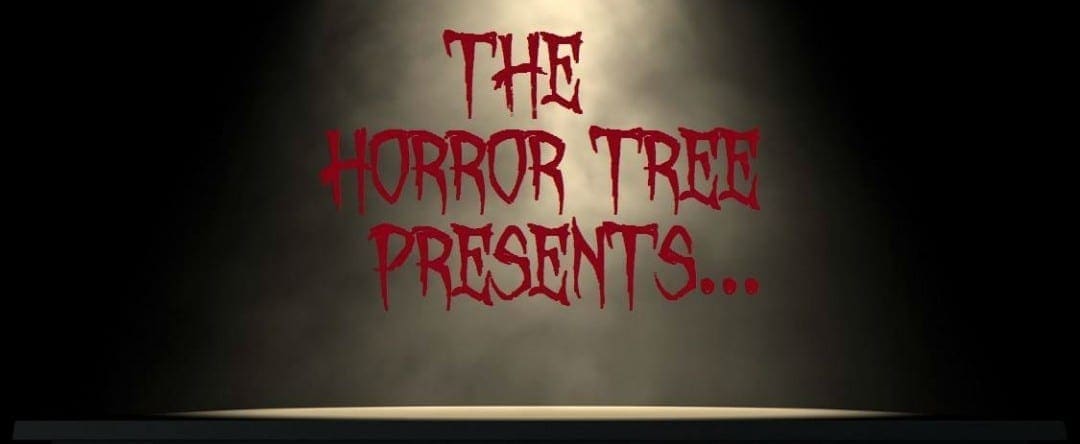
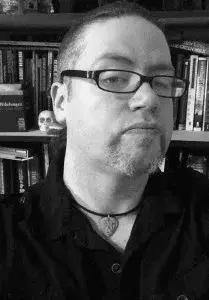 Claire – Hi Curtis! Great to chat with you. Let’s jump right in. What are you currently writing/working on?
Claire – Hi Curtis! Great to chat with you. Let’s jump right in. What are you currently writing/working on?
Curtis – I’m currently working on the final book in my Bad World series, which is proving to be more elusive than the previous two books. There’s this balancing act of trying to keep the tone of the book familiar without regurgitating the same tropes and techniques from the previous books.
The Bad World books are kind of known for being really over the top, so I feel like I need to make this last instalment absolutely ludicrous, which is fun, but it brings a lot of pressure with it.
I’ve also been taking breaks here and there to work on short stories, and I’ve been experimenting with structured poetry. I guess poetry is a tough market, especially for weird/horror-based work, but I’m finding that I enjoy it.
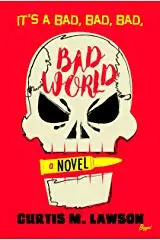 Claire – Tell me about your latest release.
Claire – Tell me about your latest release.
Curtis – This summer Gehenna & Hinnom books will be publishing a novella that I co-wrote with Doug Rinaldi. The book is called Those Who go Forth into The Empty Place of Gods. It’s a cosmic horror story that follows an underachieving genius who finds himself dragged into a war between an ancient cult of immortals and his own undead Grandfather.
While a palpable darkness hangs about the story, it doesn’t take itself too seriously. There is a bit of black humor in there, and it draws as much from pulpy b-movies as it does deeper literary horror.
This was an interesting book to write, as I had never collaborated with another author before. Doug and I have similar senses of humour though, and our writing styles meshed well enough that the book doesn’t read like two disparate voices. It was a smoother experience than I had expected, and it forced me to do a lot of conscious thinking about my writing process.
Claire – You write novels, short stories, and comics. Have you always written in multiple styles?
When I first became seriously interested in writing my main focus was on comics. I had this wildly unrealistic goal of writing blockbuster revivals of d-list characters at Marvel. Hellstorm. Morbius. Foolkiller. Sleepwalker. Stuff like that.
During my time as a comic creator I did toy around with short stories as well. I would send a story to an anthology or magazine every so often but would give up after one or two rejections. I just figured it wasn’t my medium.
It wasn’t until I had spent nearly a decade and thousands of dollars pursuing a career in comics that I decided to shift my attention to prose. I had finally sold a short story to a magazine (though the magazine never ended up being published), so my confidence was high, and I had a story concept in my head, but no money to pay an artist to draw the comic. I decided to say the hell with it and wrote the story as a novel instead. Amazingly that novel, The Devoured, got picked up by a publisher within months of my final draft being finished.
Since then I have mainly focused on prose. I love comics, but they are expensive to make, and my short stories and novels just sell better, so that’s what I focus on. I’d still love to play in the Marvel and DC sandboxes someday if any of their editors are reading this.
Claire – Tell us about your writing process. Where do you write? When do you write? Do you have any writing rituals?
Curtis – I have a little corner of the living room set up with a computer desk and my laptop. I’m a stay at home dad, so I spend a few hours in the morning and a few hours in the afternoon writing. My routine is pretty basic. Tea or soda to drink with some music playing. The music varies depending on the mood of the project, but I usually listen to classical music or black metal when I write.
Claire – Let’s focus on your novels. ‘It’s a Bad, Bad, Bad, Bad World’ has garnered a lot of great reviews on Amazon. Tell me about the book. Where did your inspiration come from?
Curtis – It’s a Bad, Bad, Bad, Bad World was really something I just wrote for fun. I honestly thought it was too weird and that no one would get it, but luckily, I was wrong. It turned out to be my most popular book.
The title is a riff off of the old film It’s a Mad, Mad, Mad, Mad World. The name inspired the rest of it. I wanted to capture the madcap, frenetic scavenger hunt feel of the old movie, but in a darker way. I chose to populate my story with colourful villains (lunatic nuns, inept occultists, serial killers in love), all vying for an ancient set of cursed artifacts, and let them battle it out.
You can really see my comic book roots shine through in this book. The characters, the settings, the battles – everything is just over the top. It has a very cinematic feel to it as well, and it draws a lot of inspiration from exploitation cinema and Tarantino films.
Bad World resonated with a lot of people because it’s as fun as it is dark. I would say the fun parts of it – the black humor, the snarky characters, and the ridiculous fight scenes – make the really dark aspects of the book stand out deeper.
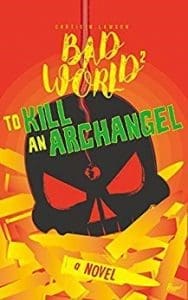 Claire – The Sequel to ‘Bad World’ is ‘Bad World 2: To Kill An Archangel.’ Had you always planned a sequel? How does it follow the original?
Claire – The Sequel to ‘Bad World’ is ‘Bad World 2: To Kill An Archangel.’ Had you always planned a sequel? How does it follow the original?
Curtis – I had originally planned it as a stand-alone book, but my publisher pushed for me to make a trilogy because “people want to read a series”. So, I outlined two more books, but then parted ways with the publisher before the first book came out.
When I self-published Bad World it ended up selling really well and people kept reaching out to me, asking for more. I figured I already had two more books outlined, so what the hell.
As for the second book, it picks up five years after the first and focuses on the few characters that survived book 1. The pacing is a bit slower, the storytelling less frantic, and the characters are fleshed out more deeply, but it still manages to one-up the absurdity of the first book, culminating in a Vatican City heist caper and a battle with the Pope.
Claire – ‘The Devoured’ is described as a ‘grim and compelling new vision of The Old West, filtered through Norse and Native American myth.’ It sounds fascinating. How did you merge all those concepts together? Where did the ideas come from?
Curtis – The initial idea behind The Devoured was to tell the story of a man who had lost everything. I chose to make my protagonist a Confederate soldier because it played into that theme of loss. He was a man who’d lost his war, his nation, and comes home to learn that he’s lost his family. He has nothing to lose, which makes him desperate and dangerous.
I also wanted to explore some of the classic themes behind cosmic horror, particularly nihilism and man’s insignificance in the universe. I didn’t want to do a Lovecraft pastiche though, so I chose to delve into the largely unexplored dark side of older religions. Since the story was taking place in the Reconstruction Era, I thought that looking at the elder god concept, or more accurately the concept of the titan or jotun (which more accurately translates into devourer) through the lens of Norse myth for one character and the lens of Native American myth for another would be fitting.
The last thing that I wanted to explore was the Luciferian, enlightenment ideals that went into the building of America. The Old Man, the protagonist, represents these luciferian/promethean concepts of man standing up against a heavenly tyrant, as well as the concept of young gods (modern man in this case) rising up against the titans of old.
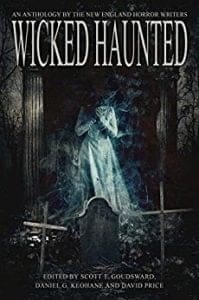 Claire – Tell me about your short story ‘Everything Smells Like Smoke Again’ published in Wicked Haunted: An Anthology of the New England Horror Writers. Frank Michaels Errington from Cemetery Dance reviewed the anthology and commented that he loved your story.
Claire – Tell me about your short story ‘Everything Smells Like Smoke Again’ published in Wicked Haunted: An Anthology of the New England Horror Writers. Frank Michaels Errington from Cemetery Dance reviewed the anthology and commented that he loved your story.
Curtis – The story is about a woman who slowly goes insane as the ghost of her estranged father haunts her home, or maybe her mind. It’s my most autobiographical story and it explores the repercussions of addiction on one’s family, as well as the toxicity of resentment.
Claire – Two of your stories have appeared in the anthologies ‘Black Pantheons’ and ‘Wicked Haunted.’ Tell me about those stories.
Curtis – Black Pantheons is my collection of weird fiction stories that drop imperfect characters into an uncaring universe, inhabited by malevolent deities. The stories range from haunting melancholy to hardcore occult horror.
My favourite story in the collection is a novella called Paramnesia, and it flips the slasher movie trope on its head, pitting elderly, dementia patients against the evil spirit of a dead cult leader. I largely modelled the structure on the first Nightmare on Elm Street film.
Claire – What do you prefer to write? Novels or short stories?
Claire – I like both for different reasons, but I often struggle with short stories. I have a better grasp on the mechanics of longer form stories, even though they take more time and work. My ideas generally lend themselves more naturally to novels and novellas.
Claire – Do you conduct research for your stories? If so, what kind?
Curtis – I do. It all depends on what the story demands, but I’m a stickler for the details. For the Devoured I had to research the history of the railroad, the civil war, fire arms of the era, Native American reservations, and the Reconstruction Era. It was intensive.
For the Bad World books, I had to research guns, body armour, the history of Rhodesia/Zimbabwe, Vatican security, and the maps of Vatican City.
Last year I spent months researching classical music and goetic demons for a project. Luckily, I enjoy the research.
Claire – Your website includes quotes of praise for your work. What do these mean to you as an another? How do they impact your future writing?
Curtis – They are nice ego boosters, but I try not to let compliments go to my head any more than I let a bad review get to me. I just keep that stuff on my site to try and gain clout and interest from readers. If they see that someone, they respect likes my stuff they might be more likely to pick up one of my books. That’s the theory anyway.
Claire – Let’s learn more about you. Who is your favourite author and why?
Curtis – H.P. Lovecraft is my favourite author. I love his vocabulary and use of language. His imagination is a thing of legend, and the details he denies the reader are scarier than the details that most writers reveal. His work is intelligent, deep, and thoughtful and it touches upon themes that I find myself drawn to.
Claire – Do you get writer’s block? If so, what do you do to overcome it?
Curtis – Not writer’s block really, but I get in the way of my own progress often. Either I get caught up on fine details, some logistic that can be fixed later, or I fall into research pits.
Claire – Writers are weird, right? What’s the strangest/most interesting thing about you?
Curtis – Wow, there’s a lot. I’m a teetotaller, and I’ve never so much as drank a beer. That’s the one that raises the most eyebrows, I guess. What else? I used to be in MENSA. My likeness has been drawn into a Spider-Man comic. Other than that, maybe my esoteric interests – underground music, psychology, philosophy, mythology, occultism.
Claire – What’s on the horizon for you?
Curtis – Last year I wrote a novel called Black Heart Boys’ Choir, which is the story of a troubled teenage boy obsessed with a cursed piece of music. To do the Hollywood mashup thing, one might call it a mix between The Music of Erich Zann, American Psycho, and A Clockwork Orange.
It was emotionally exhausting to write, but I think it is my strongest work to date. It’s been very well received by my friends and colleagues who have read it so far. S.T. Joshi has even offered to write the foreword once I find a publisher.
I also have a short story coming out in a few months in the Corpus Press anthology, In Darkness Delight: Creatures of the Night. That’s pretty exciting. The table of contents is very impressive, and Corpus Press is a great publisher to work with.
Claire – And finally, you’re stuck on an island with only one book. What’s the book?
Curtis – Probably Neil Gaiman’s Norse Mythology. I think Gaiman’s versions of the myths are more entertaining and readable to modern readers than the original Eddas, but they still contain the deeper levels of meaning that are present in the original texts. I could be happy reading those stories over and over. I think I could always find something new in them to ruminate over.
Claire – Thanks, Curtis!
Website: http://curtismlawson.com/
Twitter: @c_lawson
Instagram: https://www.instagram.com/curtismlawson/
Amazon:
https://www.amazon.com/Curtis-M.-Lawson/e/B01096UIOM/ref=dp_byline_cont_ebooks_1











